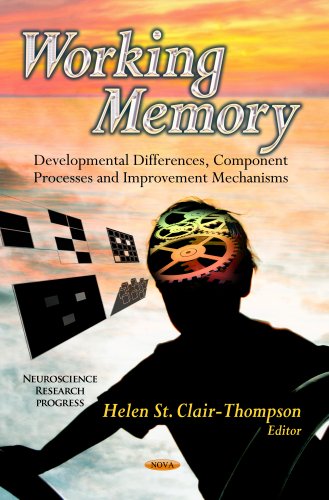
Laboratoire : PAV – EA 2114
This book presents the latest research in working memory from around the world. There are thirteen chapters which are ordered according to three main themes. Chapters concerned with developmental differences address the relationships between working memory and children’s learning and school performance, the role of working memory in the development of planning, associations between working memory and implicit learning, and theoretical models that account for visuo-spatial working memory development. Chapters concerned with component processes address issues of visual feature binding, aspects of cognitive load theory, the processing of affective stimuli in working memory, and the role of working memory in spatial orientation and navigation. Finally, a section on improvement mechanisms is comprised of chapters related to improving working memory through the differential outcomes procedure, applying transcranial alternating stimulation to the dorsolateral prefrontal cortex, and methods of cognitive remediation including working memory training both in participants with ADHD and other populations. The chapters provide comprehensive reviews as well as presenting new empirical data concerned with these topics. They aim to further the current understanding of working memory from developmental, cognitive, and educational perspectives. The book should therefore be of interest to all academics and researchers with an interest in working memory and related skills.
Chapter 3 – The Role of Working Memory and Inhibition in the Development of Motor Planning between 7 and 10 Years of Age (p. 31-42) par Valérie Pennequin, université François Rabelais, membre de PAV.

